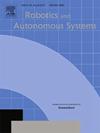LiRA: Light-Robust Adversary for model-based reinforcement learning in real world
IF 4.3
2区 计算机科学
Q1 AUTOMATION & CONTROL SYSTEMS
引用次数: 0
Abstract
Model-based reinforcement learning has attracted much attention due to its high sample efficiency and is expected to be applied to real-world robotic applications. In the real world, as unobservable disturbances can lead to unexpected situations, robot policies should be taken to improve not only control performance but also robustness. Adversarial learning is an effective way to improve robustness, but excessive adversary would increase the risk of malfunction, and make the control performance too conservative. Therefore, this study addresses a new adversarial learning framework to make reinforcement learning robust moderately and not conservative too much. To this end, the adversarial learning is first rederived with variational inference. In addition, light robustness, which allows for maximizing robustness within an acceptable performance degradation, is utilized as a constraint. As a result, the proposed framework, so-called LiRA, can automatically adjust adversary level, balancing robustness and conservativeness. The expected behaviors of LiRA are confirmed in numerical simulations. In addition, LiRA succeeds in learning a force-reactive gait control of a quadrupedal robot only with real-world data collected less than two hours.
LiRA:现实世界中基于模型的强化学习的轻鲁棒对手
基于模型的强化学习因其高样本效率而备受关注,有望应用于现实世界的机器人应用中。在现实世界中,由于不可观察的干扰会导致意想不到的情况,因此机器人策略不仅要提高控制性能,还要提高鲁棒性。对抗学习是提高鲁棒性的有效方法,但过多的对手会增加故障风险,使控制性能过于保守。因此,本研究提出了一种新的对抗学习框架,使强化学习具有适度的鲁棒性,而不是过于保守。为此,首先用变分推理重新推导了对抗性学习。此外,轻鲁棒性(允许在可接受的性能下降范围内最大化鲁棒性)被用作约束。因此,所提出的框架,即所谓的LiRA,可以自动调整对手水平,平衡鲁棒性和保守性。数值模拟证实了LiRA的预期行为。此外,LiRA仅用不到两小时收集的真实世界数据就成功地学习了四足机器人的力反应步态控制。
本文章由计算机程序翻译,如有差异,请以英文原文为准。
求助全文
约1分钟内获得全文
求助全文
来源期刊

Robotics and Autonomous Systems
工程技术-机器人学
CiteScore
9.00
自引率
7.00%
发文量
164
审稿时长
4.5 months
期刊介绍:
Robotics and Autonomous Systems will carry articles describing fundamental developments in the field of robotics, with special emphasis on autonomous systems. An important goal of this journal is to extend the state of the art in both symbolic and sensory based robot control and learning in the context of autonomous systems.
Robotics and Autonomous Systems will carry articles on the theoretical, computational and experimental aspects of autonomous systems, or modules of such systems.
 求助内容:
求助内容: 应助结果提醒方式:
应助结果提醒方式:


